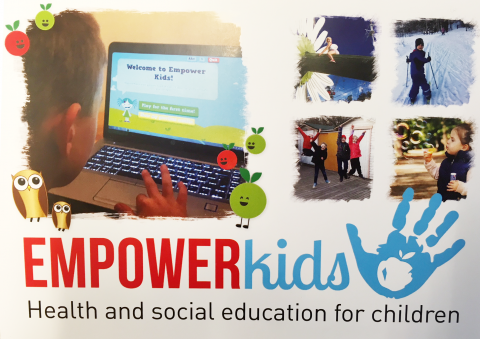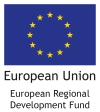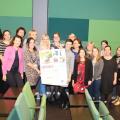A new tool to EmpowerKids
Thursday, December 21, 2017 - 13:31
Health education and social advices to support smart lifestyle choices in children
The seminarLast week, the final seminar of Central Baltic project EmpowerKids took place in Turku, Finland. The seminar focused on how well-being and citizen empowerment are integrated into city/ national policies as well as on the activities implemented in the framework of the project.
The first presentation was held by City of Turku Open Participation specialist Anri Niskala who gave insights into what solutions the City of Turku has developed in order to increase adult and children participation in the decision making process. She also mentioned that, in order to increase participation and empower citizens of all ages and social background, city officials need tools, encouragement, training and motivation to involve people in policy planning and decision-making.The presentation offered a link between the challenges health and social professionals face when discussing the concept of healthy lifestyle with children and the tool developed by the project to support their work; with the EmpowerKids Tool, health and social workers have the opportunity to learn more about health status and needs of children aged 6-12 and to better plan their interventions.
The project
The concept of health education and social advices to children, was developed into the EmpowerKids project by the Baltic Region Healthy Cities Association and project partners from the University of Turku, Tallinn University Rakvere College and Jurmala City Council Welfare Department. The project aim is to allow children to make smart lifestyle choices despite their parents’ socio-economics background or the way they conduct their life.
The Tool
The EmpowerKids Tool is an online-based application that supports professionals in discussing health and social issues with children. The application consists of a health game and it is divided into four sections which are nutrition, physical activity, social activities and family resources. The Tool is based on research into health games and the concept of gamification conducted by the University of Turku, which also coordinated the development of the application. The testing and refining, of the idea first, and the game later, was further developed with members of the project consortium. The Tool was elaborated by professionals from the participating countries in 2016 and tested the following year. The first testing round of the prototype took place on February 2017 with 95 children and 14 professionals from participating countries (in schools, kindergartens, day- and social centers) whilst the second testing round with the updated version of the application based on the results of the first testing took place in September 2017 with 69 children and 11 professionals. The final version was developed right after. During the testing phase, the game was played by children with the support of professionals trained in the use of the application. This procedure enabled the child to discuss the game results with a health and social professional and to receive advices and information aimed at supporting his/her healthy lifestyle choices.
Lesson Learned
Success factors
According to the interviews conducted with the participating children and collected by the project coordinators, children enjoyed the project activities in which they were involved, such as cooking workshops, walks in the nature and other physical activities as well as testing the Tool.
Challenges
The most challenging part of the project was deciding which nutritional guideline to follow when developing the unified Tool as each country has a slightly different one.
During the testing it become evident that the game was too complex for younger children: professionals were often required to explain the meaning of words used in the tool.
Sustainability of the projectThe Tool will be soon available for organisations working with children. At the moment the consortium is negotiating the best way for its promotion after the project ends. The University of Turku will continue being in charge of the Tool and its maintenance after the project ends.

EmpowerKids leaflet



